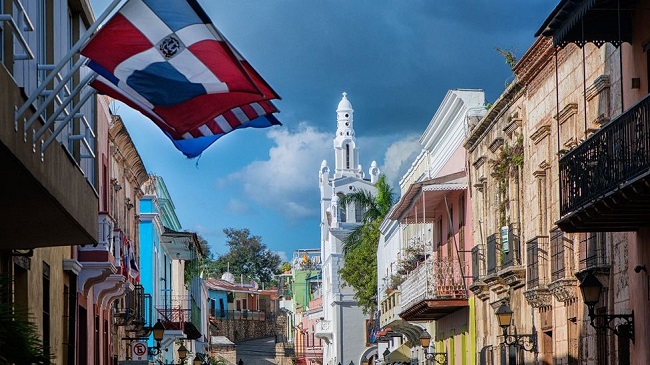An interactive event on the first Global Stocktake took place at Latin America and the Caribbean Climate Week (from July 18 to 22) in Santo Domingo last week, assembling experts from across the region. The Global Stocktake is the ambition ratcheting mechanism of the Paris Agreement, designed to enable the international community to assess the collective progress of the long-term goals to curb greenhouse gas emissions, build resilience to climate change and provide the means of implementation and support.

Another key goal is to identify opportunities with a view of informing the next round of national climate action plans (Nationally Determined Contributions, or NDCs). The Global Stocktake was launched at the UN Climate Change Conference COP26 in Glasgow and this round of the GST will conclude at COP28 in the United Arab Emirates in 2023, before the next cycle starts five years later in 2028. There is a lot of interest in the Stocktake – former UN Climate Change Executive Secretary Christiana Figueres, from Costa Rica, has called it the “heartbeat of the Paris Agreement.”
At the opening of the event in Santo Domingo, the COP26 Regional Ambassador for Asia-Pacific, the Caribbean and Small Island Developing States, said: “2022 is the year of implementation of the commitments made in Paris. The Global Stocktake is a crucial milestone to enhance ambition across all pillars of the Paris Agreement. As the science shows, we still have a long way to go keep the 1.5 degrees Celsius goal of the Paris Agreement alive. And we know that the failure to achieve that goal will be catastrophic for societies around the world.”
One example of concrete regional climate action highlighted during the Santo Domingo meeting was explained by Pablo Vieira, Global Director of the NDC Partnership Support Unit. His organisation supports more than 80 countries to effectively implement their climate commitment, with 28 of them in the LAC region. Eighteen of these countries, ranging from Chile to Bolivia, have already submitted more ambitious plans as a result of the support they have received from the Partnership.
Marcela Jaramillo, Senior Associate at 2050 Pathways Platform and co-chair of the Low Emissions Development Strategies Platform for Latin America and the Caribbean, said that climate finance continues to be a big challenge for the region, along with the just transition to clean energy.
“People are really concerned about employment,” she said, “and the net-zero carbon plans in Latin America cover a lot of issues which are specific to the region – notably access to water and the protection of biodiversity.”
She cited as examples the climate strategies of countries such as Colombia, which are heavily geared to protecting forests, and the strategy of Chile, which has a strong emphasis on the protection of oceans.
Raquel Sagot represents a youth network in Costa Rica. As a climate community science specialist, researcher and youth consultant, she participates in the “Climate agents” project that brings climate community science education to rural areas of Costa Rica. She is also the founder of Colectiva Orgánica organisation that works on human rights and climate justice in vulnerable communities.
At the event, Raquel Sagot stressed the importance of working with indigenous peoples in the LAC region, and with youth. She believes that the participation of civil society is crucial to advance climate action, and as part of the global Stocktake process.
“We are in a situation in which we need to professionalise our work. We need to access funds – funding climate action by youth can change the destiny of the planet,” she said.
At breakout discussions during the event participants, including government representatives and civil society both in the room and online, discussed ways to enhance climate action and ambition, and highlighted effective and innovative solutions in the region. A detailed report of the event in Santo Domingo will soon be posted online.
A similar event on the Global Stocktake is planned to take place at this year’s African Climate Week in Gabon (from August 29 to September 2).
